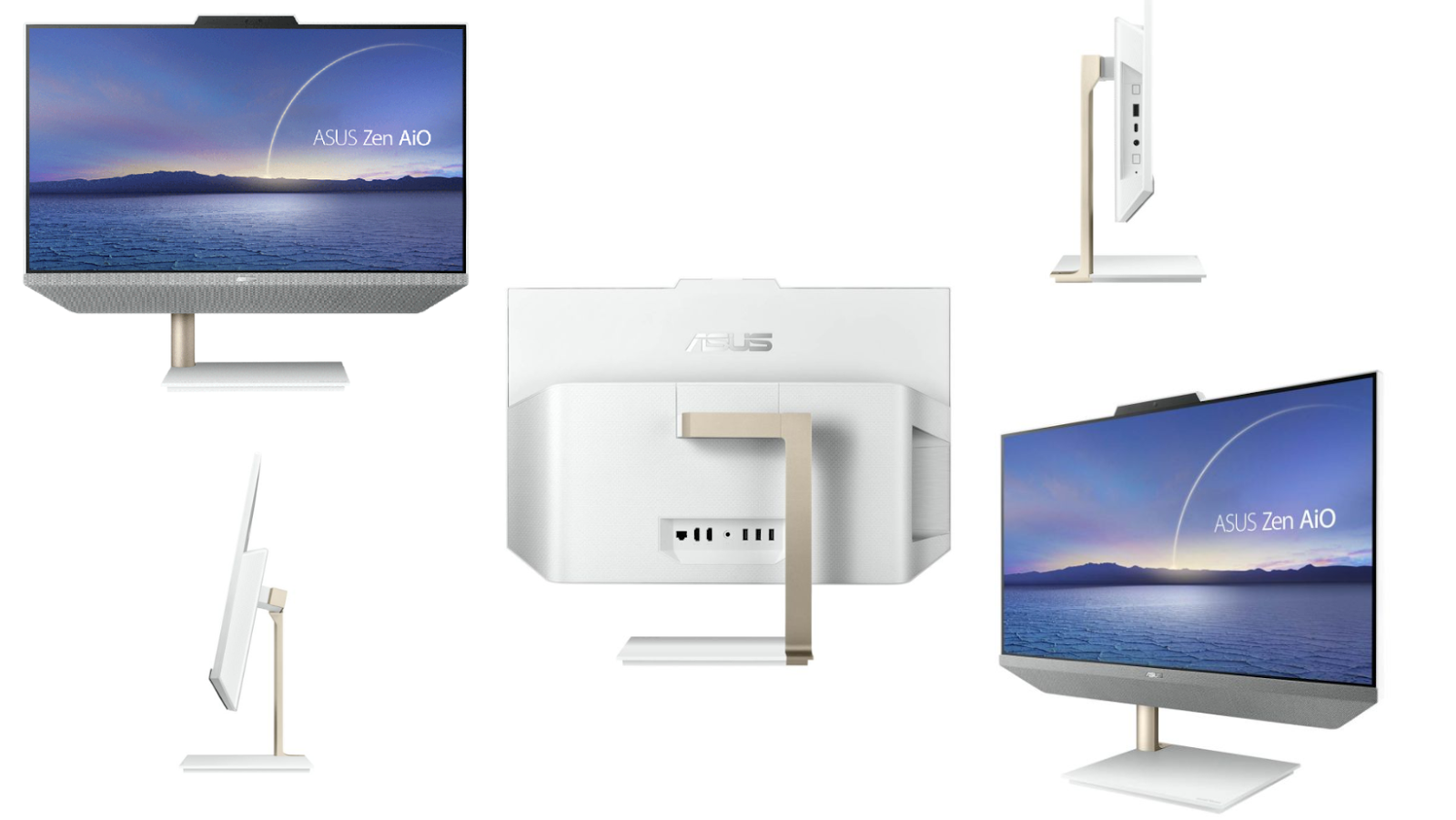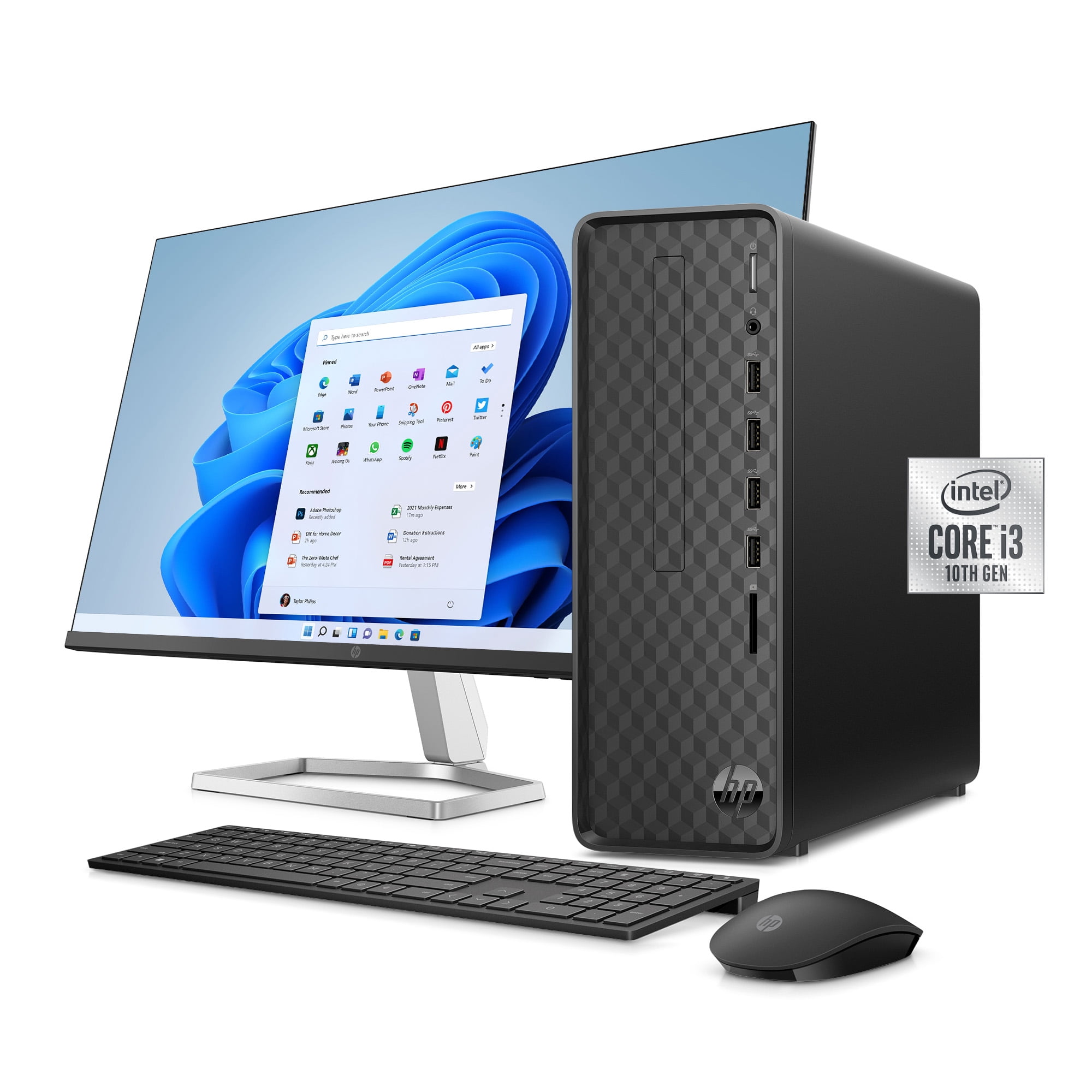Best Desktop Computer For Home Office

In today's work-from-home landscape, a reliable desktop computer is no longer a luxury, but a necessity. For value-conscious shoppers seeking the best desktop for their home office, navigating the vast market can feel overwhelming.
This review article aims to cut through the noise, providing an analytical overview of top contenders, tailored to various budgets and needs.
We'll delve into specifications, performance benchmarks, and practical considerations to empower you to make an informed decision.
Why a Desktop Computer Matters for Your Home Office
While laptops offer portability, desktop computers often deliver superior performance, expandability, and ergonomics for sustained productivity.
Desktops generally offer better value for money, providing more processing power and storage at a similar price point compared to laptops.
The enhanced cooling systems in desktops also contribute to longer lifespans and more stable performance during demanding tasks.
Shortlist: Best Desktop Computers for Home Office
Budget-Friendly All-Rounder: HP Pavilion Desktop TP01
Ideal for everyday tasks, web browsing, and light office work.
Performance Powerhouse: Apple Mac Mini (M2 Chip)
Excellent for creative professionals and users who require robust processing power.
Expandability Champion: Dell XPS Desktop
Offers ample upgrade options for future-proofing your investment.
Compact and Capable: Intel NUC 13 Pro Kit
Perfect for space-constrained home offices.
Detailed Reviews
HP Pavilion Desktop TP01
The HP Pavilion Desktop TP01 strikes a balance between affordability and functionality. It's equipped with an Intel Core i3 or i5 processor, integrated graphics, and sufficient RAM for most office tasks.
While not a gaming powerhouse, it handles document editing, video conferencing, and web browsing with ease. Its compact design fits seamlessly into most workspaces.
It features multiple USB ports, an HDMI output, and a DVD drive (in some configurations), providing essential connectivity. The pre-installed Windows operating system ensures a familiar user experience.
Apple Mac Mini (M2 Chip)
The Apple Mac Mini (M2 Chip) is a compact marvel, packing incredible performance into a tiny footprint. The M2 chip delivers blazing-fast speeds for demanding applications like video editing, graphic design, and software development.
Its energy efficiency is remarkable, consuming significantly less power than comparable desktops. The macOS operating system is renowned for its intuitive interface and robust security features.
While the base configuration comes with limited ports, its Thunderbolt/USB 4 ports offer high-speed data transfer and display connectivity.
Dell XPS Desktop
The Dell XPS Desktop is a highly customizable option that can be configured to meet a wide range of needs. It offers a variety of processor choices, from Intel Core i5 to i9, and dedicated graphics cards for demanding tasks.
Its spacious interior allows for easy upgrades, ensuring that your investment remains relevant for years to come. The sleek and minimalist design complements any modern home office.
Dell provides excellent customer support and a comprehensive warranty for added peace of mind. The XPS Desktop is a great choice for users who value performance and expandability.
Intel NUC 13 Pro Kit
The Intel NUC 13 Pro Kit is an ultra-compact desktop that delivers impressive performance despite its small size. It's powered by Intel Core i5 or i7 processors and supports up to 64GB of RAM.
This barebones kit allows you to customize the storage and operating system to your preferences. It's ideal for users who want a powerful and discreet desktop that can be easily hidden away.
Despite its small size, it offers a decent selection of ports, including Thunderbolt and HDMI. The Intel NUC 13 Pro Kit is a great solution for space-constrained environments.
Side-by-Side Specs Table with Performance Scores
| Desktop | Processor | RAM (Max) | Storage | Graphics | Geekbench 6 (Single-Core) | Geekbench 6 (Multi-Core) | Price (Approx.) |
|---|---|---|---|---|---|---|---|
| HP Pavilion Desktop TP01 | Intel Core i5-12400 | 16GB | 512GB SSD | Integrated Intel UHD Graphics 730 | 1800 | 8500 | $500 |
| Apple Mac Mini (M2) | Apple M2 | 16GB | 256GB SSD | Integrated 8-Core GPU | 2500 | 9000 | $600 |
| Dell XPS Desktop | Intel Core i7-13700 | 32GB | 1TB SSD | NVIDIA GeForce RTX 3060 | 2700 | 16000 | $1200 |
| Intel NUC 13 Pro Kit | Intel Core i5-1340P | 64GB | (User Configurable) | Integrated Intel Iris Xe Graphics | 2200 | 10000 | $650 (Barebones) |
Note: Performance scores are approximate and may vary based on specific configurations. Prices are also approximate and may fluctuate.
Practical Considerations
Beyond raw performance, several practical factors influence the ideal desktop choice. Consider the size of your workspace and the availability of peripherals like a monitor, keyboard, and mouse.
Noise levels can also be a concern, especially in quiet home office environments. Consider the types of tasks you'll be performing regularly.
Ensure the chosen desktop has adequate ports for your peripherals and external devices. Factor in your budget and prioritize features that are most important to you.
Summary
Choosing the best desktop computer for your home office requires careful consideration of your specific needs and budget. The HP Pavilion Desktop TP01 offers excellent value for everyday tasks.
The Apple Mac Mini (M2 Chip) delivers exceptional performance in a compact form factor. The Dell XPS Desktop provides unparalleled expandability and customization options.
Finally, the Intel NUC 13 Pro Kit is a great choice for space-constrained environments. Weigh the pros and cons of each option based on your individual requirements.
Call to Action
Ready to upgrade your home office setup? Explore the desktops discussed in this article and compare them to your specific needs. Click on the product links to learn more and make an informed decision.
Investing in the right desktop computer can significantly enhance your productivity and create a more enjoyable work-from-home experience.
Frequently Asked Questions (FAQ)
What is the ideal amount of RAM for a home office desktop?
8GB of RAM is sufficient for basic tasks, but 16GB is recommended for smoother multitasking and more demanding applications. 32GB or more is beneficial for power users who work with large files or run multiple resource-intensive programs.
Should I choose an SSD or HDD for storage?
SSDs (Solid State Drives) offer significantly faster performance than HDDs (Hard Disk Drives). An SSD is highly recommended for the operating system and frequently used applications.
HDDs can be used for mass storage of files that don't require fast access times.
Do I need a dedicated graphics card for a home office desktop?
A dedicated graphics card is generally not necessary for typical office tasks. Integrated graphics are sufficient for web browsing, document editing, and video conferencing.
However, a dedicated graphics card can improve performance for tasks such as video editing, graphic design, and gaming.
What operating system should I choose?
Windows and macOS are the two most popular operating systems for desktop computers. Windows offers a wider range of software compatibility, while macOS is known for its user-friendly interface and security features.
Consider your personal preferences and the software you need to use when making your decision.
How important is the processor for a home office desktop?
The processor is a crucial component that affects the overall performance of your desktop. Choose a processor that is powerful enough to handle the tasks you'll be performing regularly.
Intel Core i5 or AMD Ryzen 5 processors are good options for most home office users. Intel Core i7 or AMD Ryzen 7 processors are recommended for more demanding tasks.






:max_bytes(150000):strip_icc()/2LW4045927-7-c064855ce882418888f9c66920f12de1.jpg)











